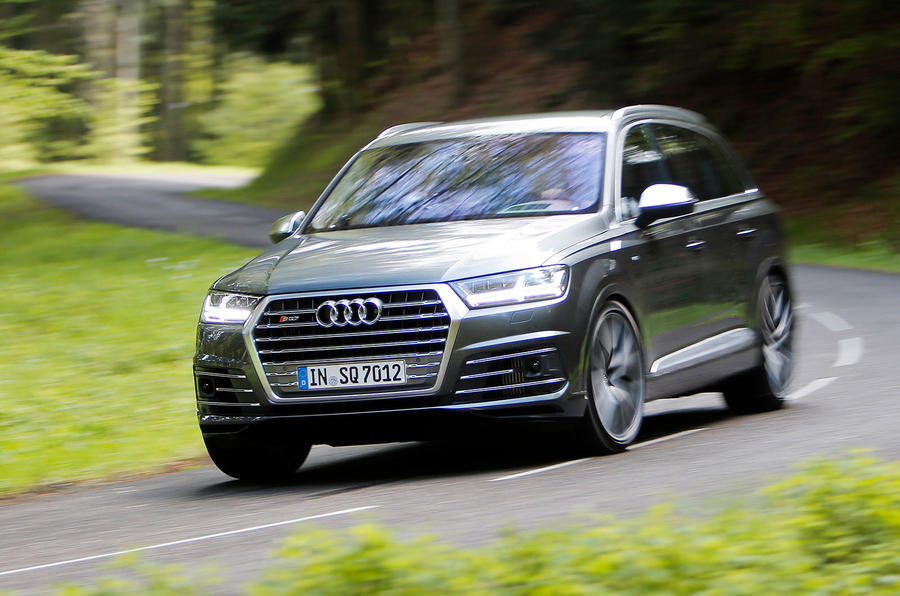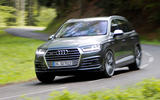What is it?
Influential. This is the Audi SQ7, but don’t worry too much about that. It's a near irrelevant £71k (before options) 4x4 that is ludicrously fast and, actually, rather more entertaining than it has any right to be. But it’s what’s attached to the SQ7 TDI quattro that will have rather more relevance to the cars we drive during the next decade or two.
For as long as we’ve known, cars have had 12V electrical systems. And the SQ7 still does have a 12V electrical system, but it’s augmented by a 48V subsystem that drives two things of importance now and will drive several other things of importance in the near future.
In increasing order of importance, those things are active anti-roll bars – just like those on the Bentley Bentayga, which is based on the same architecture as the Q7 – and, more important, an electrically driven compressor, and it's here we must get a little in-depth. What that does is precisely the same thing as the two turbochargers the SQ7’s engine also has, only it’s driven by electricity rather than being spooled up by exhaust gases. That’s meant to give it a distinct advantage over any car turbocharger up to and including those on a Ferrari 488 GTB, in that they can go from rest to 70,000rpm in a quarter of a second and so start charge-boosting air into the engine (where denser air makes a bigger bang, which is what gives turbos their efficiency) much more quickly than a regular turbo.
In effect, the electrically driven compressor – we might get used to calling it an EPC, or we might start, perhaps incorrectly but rather more conveniently, come to know it as an electric turbo – is said to reduce lag to negligible levels. It and the roll bars need to be 48V because they require enough oomph to act quickly and powerfully, and the only ways to get more power are to increase current or volts – and more current requires bigger hardware and thicker leads, so volts it is (there’s a 48V lithium ion battery in the boot). Thus driven, then, the motor fills a gap in the torque curve left by the other turbos as they spool up at lower engine revs, although later on in the rev range they take over in sequence and do the hard blowing. First a small one blows, then a bigger one takes over. At some point a valve in the exhaust lets out more noise, too.
All of which results in one of the most impressive set of engine stats in motordom: from 1000rpm you can have 664lb ft (the same as a 6.0-litre W12 petrol-engined Bentley Bentayga makes from 1350rpm), and not long after peak torque subsides -3250rpm - peak power arrives. That’s 429bhp at 3750rpm, which remains in situ right to the 5000rpm red line. There was a time when the more relatively powerful the turbodiesel, the boostier and narrower the delivery. Not any more. This has a broader spread of shove than the engine they’ll put in Boaty McBoatface.
That’s quite enough about the motor for now, though. As standard, the SQ7 gets sportier air suspension than regular Q7s in order to make it worthy of the ‘S’ tag. The active anti-roll bars are, however, an option, as is four-wheel steer, a limited-slip rear differential, ceramic brake discs and alloy wheels up to 22in in diameter. Perhaps Audi forgot that this is a 2405kg SUV, not a sports coupé. Anyway, as you’ve probably guessed, the car we were loaned contained all of the above. Elsewhere the SQ7 is a Q7 – a big, imposing, seven-seat SUV.




































Join the debate
Add your comment
Probably a heap of VW/Audi scrap 18mpg
If you think this is good...
all about the money
then stick £50,000 onto the price ticket
I should hate this
2. Its an SUV
3. Its an Audi
But I want one. Just found the the family wagon in my lottery win garage.